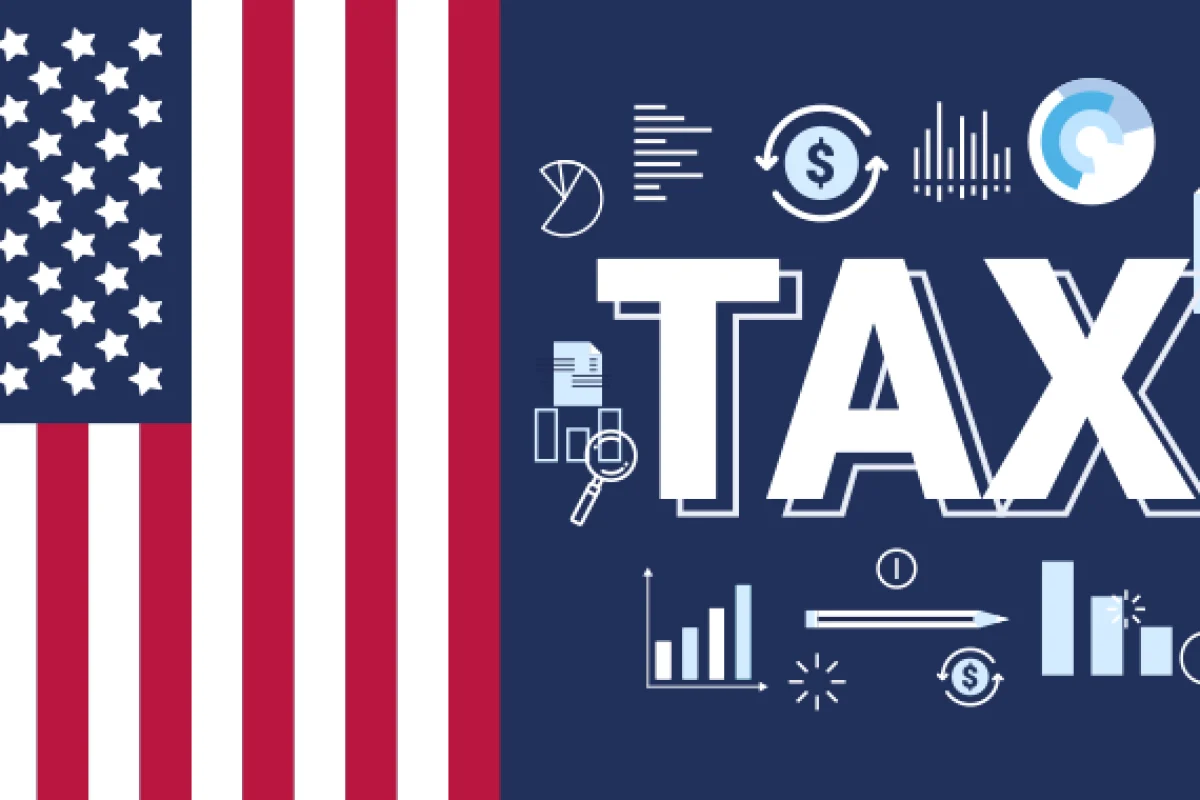Understanding the U.S. tax system can be intricate, especially for foreign companies aiming to expand or manage a workforce within the country. Whether utilizing EOR (Employer of Record) or PEO (Professional Employer Organization) services, grasping the key elements of the U.S. tax regime is vital for streamlining operations and ensuring seamless business functions.
Key Taxes in the USA for Employers and Employees
1. Corporate Income Tax (CIT)
The Corporate Income Tax is levied on companies operating within the United States. Here’s a breakdown of the corporate tax rates for 2024:
| Tax Rate | Applicable To |
|---|---|
| 21% | Standard rate for most corporations |
| 15% | Small corporations with taxable income up to $50,000 |
| 25% | Taxable income between $50,000 and $75,000 |
| 34% | Taxable income between $75,000 and $10 million |
| 35% | Taxable income between $10 million and $15 million |
| 38% | Taxable income above $15 million |
2. Federal Insurance Contributions Act (FICA) Taxes
FICA taxes fund critical social programs, including Social Security and Medicare. Both employers and employees contribute a share of the employee’s gross wages:
| Type of Contribution | Employer Rate | Employee Rate |
|---|---|---|
| Social Security | 6.2% (up to $160,200 for 2023) | 6.2% (up to $160,200 for 2023) |
| Medicare | 1.45% | 1.45% |
| Additional Medicare Tax | 0.9% (on income exceeding $200,000 for single filers) | N/A |
3. State and Local Taxes
Beyond federal taxes, many states and local jurisdictions impose their own corporate income taxes, sales taxes, and property taxes, leading to significant variation across the country:
| State | Corporate Income Tax Rate |
|---|---|
| California | 8.84% |
| New York | 6.5% |
| Texas | 0% (franchise tax instead) |
| Florida | 4.458% |
4. Personal Income Tax (PIT)
Personal income tax in the U.S. operates on a progressive scale, with employers responsible for withholding the correct amount from employees’ salaries based on federal and state tax brackets:
| Income Bracket ($) | Federal Tax Rate |
|---|---|
| Up to $11,000 | 10% |
| $11,001 to $44,725 | 12% |
| $44,726 to $95,375 | 22% |
| $95,376 to $182,100 | 24% |
| $182,101 to $231,250 | 32% |
| $231,251 to $578,125 | 35% |
| Over $578,125 | 37% |
Tax Residency for Employers and Employees
- Corporate Residency: A company is deemed a tax resident in the U.S. if it is incorporated there or has its principal place of business within the country.
- Individual Residency: Individuals who meet the “substantial presence test” or are green card holders are recognized as tax residents.
Tax Incentives for Global Employers
The U.S. offers various incentives designed to stimulate foreign investment and business development:
| Incentive Type | Description |
|---|---|
| Research & Development (R&D) Tax Credit | A credit of up to 20% on qualified research expenses. |
| Opportunity Zones | Provides tax benefits for investments in economically distressed areas. |
| Foreign Tax Credit | Allows credits for foreign taxes paid, thus reducing U.S. tax liability on foreign income. |
Tax Filing and Compliance Obligations
Employers must comply with a range of filing requirements. Below is a summary of key tax deadlines:
| Tax Type | Filing Requirement |
|---|---|
| Corporate Income Tax | Annual return (Form 1120) due by April 15th. |
| Payroll Taxes | Monthly or quarterly, depending on employee count. |
| Sales Tax | Varies by state; often filed monthly or quarterly. |
Managing U.S. Taxes with EOR/PEO Services
- Simplified Tax Compliance: EOR and PEO services handle tax filings, payroll processing, and compliance with various federal and state regulations, significantly reducing administrative burdens.
- Local Expertise: Providers like GlobainePEO offer essential guidance to ensure adherence to U.S. tax laws, minimizing risks of non-compliance.
Additional Considerations for Global Employers
| Factor | Description |
|---|---|
| Permanent Establishment (PE) Risk | Companies with a physical presence may incur additional tax liabilities. EOR/PEO services can mitigate this risk by acting as the local employer. |
| Double Taxation Treaties | The U.S. has treaties to prevent double taxation, which often reduces withholding tax rates on dividends, interest, and royalties. |
| Transfer Pricing | Multinational companies must ensure that inter-company transactions are conducted at arm’s length and thoroughly documented to avoid penalties. |
| Cross-border Workforce | Employers should consider the tax implications of cross-border employment, including potential shifts in residency and social security obligations. |
Final Thoughts
Grasping the nuances of taxes in the USA is essential for global employers aiming to ensure compliance, manage costs, and avoid costly penalties. EOR/PEO services can simplify this complex landscape, empowering employers to concentrate on their core business operations.
GlobainePEO – Your Trusted Partner
At GlobainePEO, we specialize in managing tax compliance for global companies in the USA. Our dedicated team ensures that your business adheres to U.S. regulations, enabling you to focus on driving growth and success.

